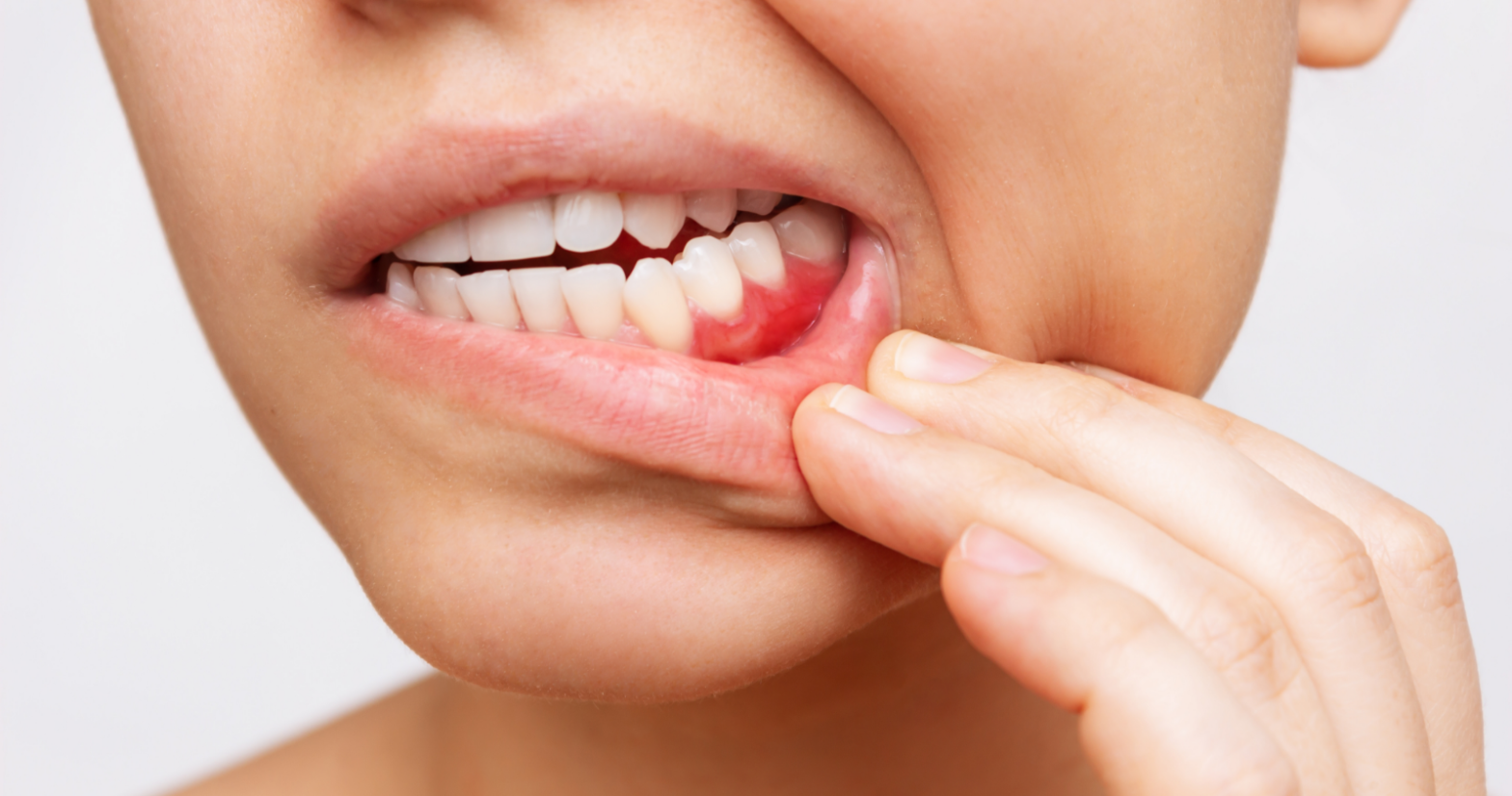#Gum disease and dental surgery: Scientific studies prove the effect of hyaluronic acid

Clinical studies showed that hyaluronic acid 0.1% / 0.8% (GENGIGEL® Professional) led to a significant improvement in relevant clinical parameters and improved healing in patients with periodontal diseases and in patients undergoing dental surgery.
The glycosaminoglycan hyaluronic acid (HA) is a major component of the extracellular matrix. It has many functions including maintaining tissue homeostasis and protecting cell surfaces. It also influences physiological processes such as cell attachment, migration and proliferation, wound healing, immune response and inflammatory reactions.1
HA has been used in various medical fields for many years. Clinical studies have shown that HA has the ability to accelerate healing and reduce pain in a variety of wound types including burns, epithelial surgical wounds and chronic wounds.2
Significant effect in chronic periodontitis
In dentistry, HA can be used as an adjunct to non-surgical or surgical periodontal treatment. A systematic review with meta-analysis of 13 randomized trials found that the combined use of HA with nonsurgical or surgical periodontal therapy improved the clinical outcome.3 Yang et al. recently investigated the clinical efficacy of HA (GENGIGEL®) in patients with chronic periodontitis using a randomized study.4 A total of 92 patients were included. The patients in the control group (n = 46) received oral therapy with ornidazole after rinsing the periodontal pockets, the patients in the observation group (n = 46) received the HA gel plus ornidazole. After a treatment period of 4 weeks, the observation group showed a significantly higher overall response rate than the control group (93.4% vs. 73.91%, p<0.05). Parameters such as probing depth, bleeding and plaque index had improved significantly in the observation group compared to the control group. Likewise, the concentration of inflammatory factors in the observation group was significantly lower than in the control group (p < 0.05).
Less pain and better wound healing
Yildirim et al. evaluated the effect of topical application of two HA formulations (GENGIGEL® Professional and Consumer) on postoperative symptoms and wound healing after a free gingival graft (FGG).5 36 patients were randomized into three groups. In the Test 1 and Test 2 groups, the two HA formulations in gel form were applied to the palatal donor site of the gingival graft together with a periodontal dressing. In the control group, the wound was only covered with a periodontal dressing. On days 3, 7, 14 and 21, pain and burning were assessed using a visual analogue scale. Completeness of epithelialization and color match was assessed at days 3, 7, 14, 21, and 42.
On days 3 and 7, the patients in the two test groups had significantly less pain than the patients in the control group (p < 0.001 in each case). Complete epithelization was achieved in all patients of the two test groups on day 21 and in the control group on day 42. Both test groups had significantly higher color match scores than the control group at day 21 and day 42. The topical application of GENGIGEL® thus had a positive effect on postoperative pain and accelerated palatal wound healing.
Credentials:
- Kavasi RM et al. HA metabolism in skin homeostasis and inflammatory disease. Food Chem Toxicol 2017;101:128-138.
- Shaharudin A, Aziz Z. Effectiveness of hyaluronic acid and its derivatives on chronic wounds: a systematic review. J Wound Care. 2016;25:585-592.
- Sculean A et al. Hyaluronic Acid as Adjunctive to Non-Surgical and Surgical Periodontal Therapy: A Systematic Review and Meta-Analysis. Clin Oral Investig 2019;23:3423-3435.
- Yang G et al. Clinical study on hyaluronic acid gel for periodontal disease in combination with oral administration of ornidazole in the treatment of chronic periodontitis after periodontal pocket rinsing. Contemporary Medicine 2019;25 No.28 Issue No.543.
- Yildirim S et al. Effect of Topically-Applied Hyaluronic-Acid on Pain and Palatal Epithelial Wound Healing: An Examiner-Blind, Randomized, Controlled Clinical Trial. J Periodontol 2018;89:36-45.